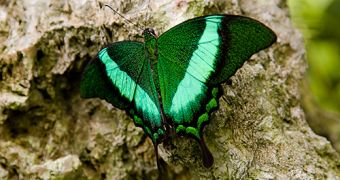A report published only yesterday in the online journal Nature Climate Change argues that, as a result of climate change and associated shifts in environmental conditions, Massachusetts' butterfly population is beginning to display changes in terms of distribution and headcounts for various species.
More precisely, as explained by leading-author Greg Breed, those butterfly species, which do best in warmer climates and which up until recently were few and far in between in this part of the world, are now thriving in Massachusetts.
On the other hand, species that cannot handle either droughts or the lack of snow very well are now disappearing from this state and moving towards regions found further up north.
Interestingly enough, it seems that climate change and global warming alone are to blame for this reshaping of Massachusetts' local biodiversity, as the researchers could find no evidence that the loss of natural habitats as a result of various human activities might have affected these insects in any way.
“In contrast to climate change, butterfly population trends did not seem to be systematically related to habitat or landscape change,” reads said report.
Furthermore, “We found no evidence that host-plant rarity, degree of host plant or habitat specialization, or the kinds of habitat preferred, had any relationship to the pattern of decline, suggesting that climate and not habitat alteration is driving broad patterns of community change.”
Naturally, these findings raise new concerns with respect to which conservation projects will yield the best of results if efforts are to be made to somewhat control this phenomena of butterfly redistribution.
As well as this, former decisions to declare various regions as protected habitats in order to safeguard various butterfly species need be reconsidered so as to accommodate for these new pieces of information which argue that climate change affects these insects more than other previously identified threats do.
This particular research was carried out with the help of the Massachusetts Butterfly Club, whose members spent the past 19 years documenting their encounters with butterfly species in various parts of this state.

 14 DAY TRIAL //
14 DAY TRIAL //